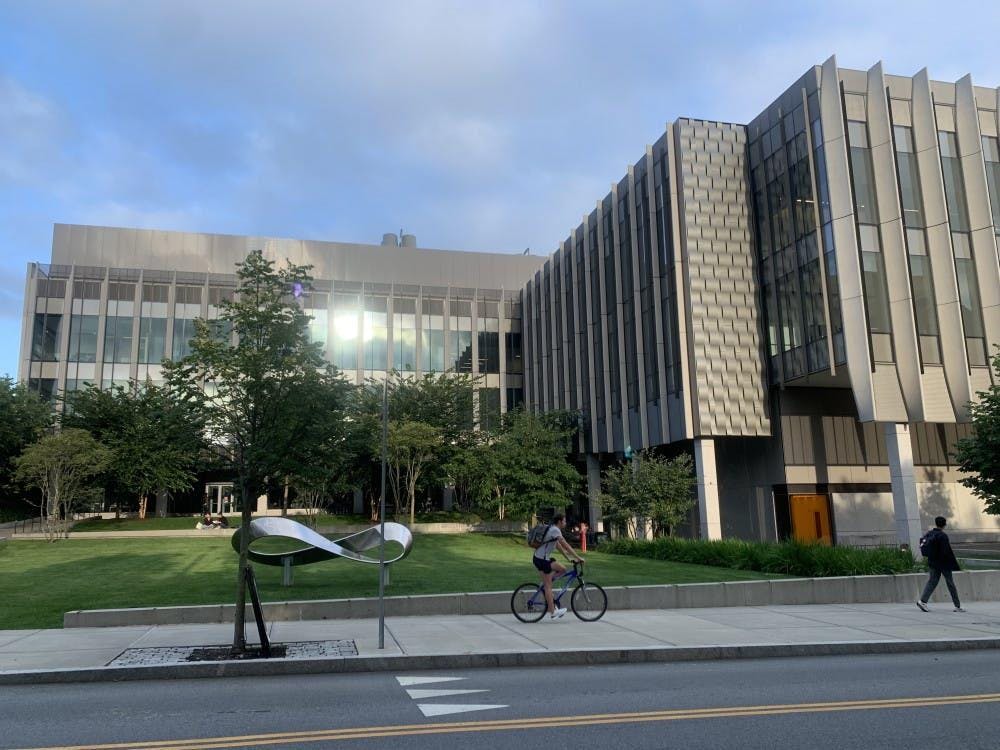The School of Engineering announced revisions to the curriculum of ENGN 0030: “Introduction to Engineering” in an email sent to students and reviewed by The Herald. The new curriculum will feature a module system from which students can pick from a selection of multidisciplinary mini-courses, according to the approved proposal document shared in the email.
ENGN 0030 was not offered last semester due to faculty retirements and an ongoing review of the core curriculum, The Herald previously reported. Last semester, 346 students enrolled in ENGN 0032: “Introduction to Engineering: Design,” the other introductory engineering course, according to Courses@Brown.
In fall 2022, 129 students enrolled in ENGN 0032, and 163 students enrolled in ENGN 0030.
The engineering core curriculum is a selection of foundational courses that the department requires students to complete by the end of their second year, according to the department’s website. The core curriculum aims to“prepare graduates to work across disciplinary boundaries, and to help students to decide on an area of specialization,” the website reads.
Since its creation in February 2022, the faculty-led Core Curriculum Committee has been in the process of reviewing how the curriculum could be “updated and strengthened,” Celinda Kofron, a senior lecturer in engineering, wrote in an email to The Herald.
“The kinds of students who are coming to Brown and the kinds of students who are studying engineering have changed,” Kenny Breuer, professor of engineering and chair of the department’s Core Curriculum Review Committee, said. “The purpose of the committee was to review all of this to see what kinds of things are working well (and) what kinds of things we need to do better.”
A letter signed by students in ENGN 0040: “Dynamics and Vibrations” last spring alleged inadequate instruction and inequitable treatment of underrepresented students in engineering, The Herald previously reported. Breuer said the review of the ENGN 0030 curriculum is “totally unrelated.”
To inform potential curriculum changes, the committee used information collected from a student survey sent to engineering students last year, as well as from discussions with alumni and advisory boards in the school, Breuer said.
“Our goal is to move forward deliberately and carefully with as much speed as we can, but not too fast, either,” Breuer said.
Breuer said that he hopes the curriculum changes will be introduced next fall and provide a broader introduction to the branches of engineering, prepare students for the impacts of computing and take full advantage of the Brown Design Workshop.
The previous ENGN 0030 curriculum covered the analysis of static structures and the use of engineering softwares, including MATLAB and computer-aided design, according to Courses@Brown. The course also included a small-group design component led by undergraduate mentors in the BDW.
The revised ENGN 0030 curriculum will still include software usage and foundational engineering concepts, but will also offer students the opportunity to select two of four multidisciplinary modules on a variety of different engineering subdisciplines, the approved proposal reads. The modules “will have some common learning goals, but are intended to be different in their topic areas to provide introduction to interdisciplinary areas of engineering,” Kofron wrote.
According to the proposal, the modules will provide “the possibility of a much broader introduction to engineering sciences that might excite and appeal to the entire range of potential engineering concentrators.”
“How to Save a Planet,” “Wind Energy” and “Engineering Sound and Music” are some potential module topics, according to the document.
Although “it hasn’t quite been decided how,” Breuer said that the changes to ENGN 0030 may affect what material is taught in ENGN 0040 and later courses.
According to the approved proposal, advanced statics and mechanics content in ENGN 0030 and ENGN 0032 will be added to a revised ENGN 0040 curriculum, and advanced topics taught in ENGN 0040 will “be absorbed into advanced courses.”
ENGN 0032, according to the document, “would be updated to incorporate any new content” featured in the new ENGN 0030 curriculum.
Christopher Bianco ’25, a mechanical engineering concentrator who took the course in fall 2021, said the former ENGN 0030 curriculum “did a pretty good job of preparing (him) for parts of ENGN 0040.”
“It’s always good to have interested, passionate students, and (the module system) seems like a good way to do that,” Bianco said. “I think as long as students are still getting the core concepts that you need to get taught to succeed in future engineering courses, that seems like a good change.”
“There were some things that we took from ENGN 0030 to understand ENGN 0040, but I just didn’t see the point (of) a lot of it,” said Olivia Baptiste ’26, who took ENGN 0030 in fall 2022. She added that she “really enjoyed the BDW portion of ENGN 0030” and even was hired as a BDW mentor for the class in the fall 2023 semester before learning it wouldn’t be offered.
Joshua Jaramillo Lopez ’25 was hired as an ENGN 0030 teaching assistant for the fall 2023 semester and, upon learning it would not be offered, “was a little frustrated with how it all went.” He previously had been a TA for the class in fall of 2022 and said it was a “good experience.”
“A whole part of engineering is that you’re always working for improvement,” Jaramillo Lopez said of the proposed updates to ENGN 0030. The revisions “should be for the better because otherwise, why would you change it?”

Kate Rowberry is a senior staff writer at The Herald.





